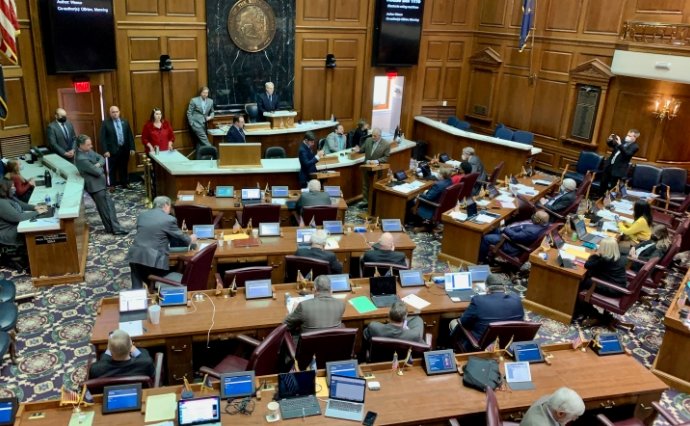INDIANAPOLIS – Two controversial bills aimed at reducing early voting hours and criminalizing sidewalk camping failed to advance in the Indiana legislature this week, drawing mixed reactions from the public and advocacy groups.
Early Voting Restrictions Rejected
Senate Bill 284, which proposed cutting early in-person voting hours, did not progress after its authors declined to move it forward before the deadline. The measure, backed by Sen. Gary Byrne (R-District 47) and Sen. Mike Gaskill (R-District 25), sought to reduce early voting from 28 days before an election to 14 days. The initial version suggested an even steeper cut, limiting early voting to just seven days.
Spokespeople for the bill stated it lacked sufficient support, and Sen. Byrne confirmed he would not pursue it further this session. Advocacy groups, such as Common Cause Indiana, strongly opposed the measure, highlighting that Indiana’s early voting period is a rare positive aspect of the state’s election policies.
Indiana Democratic Party Chair Mike Schmuhl issued a statement criticizing the bill’s intent, arguing that reducing early voting options would discourage voter participation. He pointed to long lines at polling places in previous elections as evidence that more voting access—not less—is needed.

Sidewalk Camping Bill Fails to Advance
House Bill 1662, authored by Rep. Michelle Davis (R-Whiteland), sought to penalize unauthorized camping or sleeping on state-owned or municipal land. The proposed Class C misdemeanor would have carried a penalty of up to 60 days in jail or a $500 fine.
Davis did not bring the bill up for a vote before the House deadline, effectively killing it for the current session.
Homelessness advocates voiced strong opposition, arguing the measure would criminalize people based on their housing status rather than addressing the root causes of homelessness. Jennifer Layton, president of LTHC Housing Services in Lafayette, warned that the bill would only add barriers to securing permanent housing rather than providing meaningful solutions.
According to reports, the Cicero Institute, a Texas-based think tank, played a role in developing the proposal. The institute has promoted similar legislation in other states, advocating for policies that shift funding from housing initiatives to substance abuse and mental health treatment.













